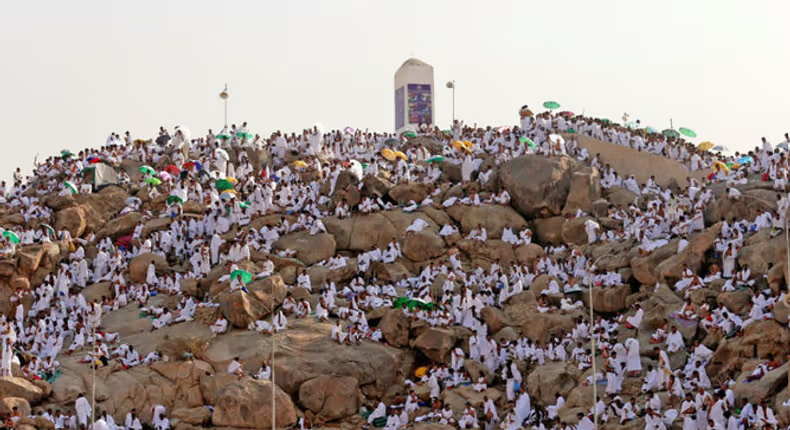Mount Arafat, located approximately 20 kilometers southeast of Mecca, holds profound significance during the Hajj pilgrimage, as it is where pilgrims gather for the pivotal rite known as Arafat Day. This day marks a crucial part of the Hajj rituals, often considered the peak of the pilgrimage.
No fewer than 65,000 Nigerian pilgrims, alongside Muslims from across the globe, converged at the plain of Arafat in Muna, Mecca, Saudi Arabia, to observe Arafat Day. This ritual takes place at Mount Arafat, also known as the Hill of Mercy, where pilgrims stand together, shoulder to shoulder, feet to feet, supplicating to Almighty Allah for mercy, blessings, prosperity, and good health.
The National Hajj Commission of Nigeria (NAHCON) and Saudi authorities coordinated comprehensive security measures to ensure the smooth flow of vehicles and pedestrians, securing routes and implementing transportation plans. They also provided essential services such as medical care, emergency assistance, and food services to cater to the needs of pilgrims who have traveled from around the world to fulfill their religious duty.
Addressing the pilgrims during the Hajj rites, Dr. Abdallah Gadonkaya encouraged Nigerian pilgrims to seize the opportunity of Arafat Day to seek divine forgiveness and solutions to personal challenges. He also urged them to pray fervently for peace and economic prosperity in regions of Nigeria experiencing security challenges, emphasizing the importance of exhibiting good behavior to positively represent Nigeria on the global stage.
Thus, Arafat Day at Mount Arafat remains a deeply spiritual and communal experience for Muslims undertaking the Hajj pilgrimage, symbolizing unity, supplication, and devotion to Allah.
